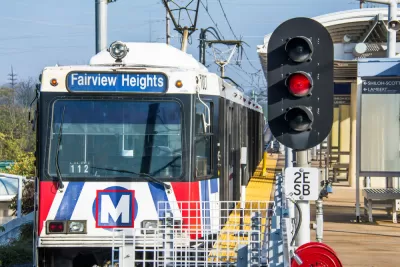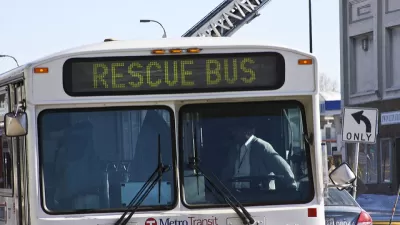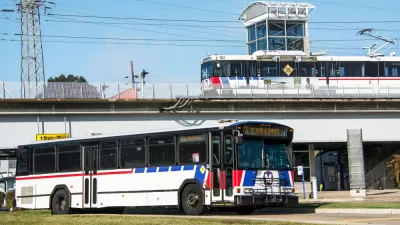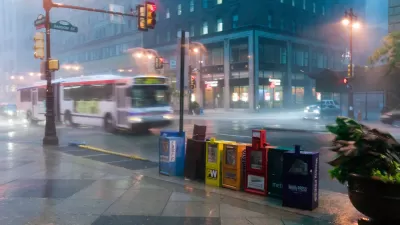Metro Transit has bus transit operations in St. Louis for the third time in seven months due to systemwide staff shortages.

Metro Transit has slashed transit service in St. Louis for the third time in seven months, according to an article by Monica Obradovic published by the Riverfront Times. Metro Transit officials blame the cuts on staffing shortages.
“In a news release, the agency said it will reduce frequency or temporarily suspend services to 30 MetroBus routes due to low ridership during weekends and weekday evenings,” reports Obradovic of the most recent changes to the Metro Transit system.
“The reduction comes after Metro indefinitely suspended routes or reduced service in November, after the agency had cut service by 5 percent eight months before. In March, Metro Transit also made cuts to its paratransit system, Call-A-Ride, to much outcry,” adds Obradovic.
As for the staffing shortages responsible for the cuts, Obradovic reports that the system is short 240 bus operators, 15 MetroLink operators, and more than 88 Call-A-Ride operators from budgeted capacity. Metro Transit officials are currently in negotiations with Amalgamated Transit Union Local 788 that could produce quality of life improvements for transit staff, and help stop the decline of transit service in St. Louis.
More details on the transit agency’s operator shortage and service cuts can be found at the source article below.
FULL STORY: Metro Transit Slashes St. Louis Bus Service — Again

Study: Maui’s Plan to Convert Vacation Rentals to Long-Term Housing Could Cause Nearly $1 Billion Economic Loss
The plan would reduce visitor accommodation by 25,% resulting in 1,900 jobs lost.

North Texas Transit Leaders Tout Benefits of TOD for Growing Region
At a summit focused on transit-oriented development, policymakers discussed how North Texas’ expanded light rail system can serve as a tool for economic growth.

Why Should We Subsidize Public Transportation?
Many public transit agencies face financial stress due to rising costs, declining fare revenue, and declining subsidies. Transit advocates must provide a strong business case for increasing public transit funding.

How to Make US Trains Faster
Changes to boarding platforms and a switch to electric trains could improve U.S. passenger rail service without the added cost of high-speed rail.

Columbia’s Revitalized ‘Loop’ Is a Hub for Local Entrepreneurs
A focus on small businesses is helping a commercial corridor in Columbia, Missouri thrive.

Invasive Insect Threatens Minnesota’s Ash Forests
The Emerald Ash Borer is a rapidly spreading invasive pest threatening Minnesota’s ash trees, and homeowners are encouraged to plant diverse replacement species, avoid moving ash firewood, and monitor for signs of infestation.
Urban Design for Planners 1: Software Tools
This six-course series explores essential urban design concepts using open source software and equips planners with the tools they need to participate fully in the urban design process.
Planning for Universal Design
Learn the tools for implementing Universal Design in planning regulations.
Ascent Environmental
Borough of Carlisle
Institute for Housing and Urban Development Studies (IHS)
City of Grandview
Harvard GSD Executive Education
Toledo-Lucas County Plan Commissions
Salt Lake City
NYU Wagner Graduate School of Public Service





























